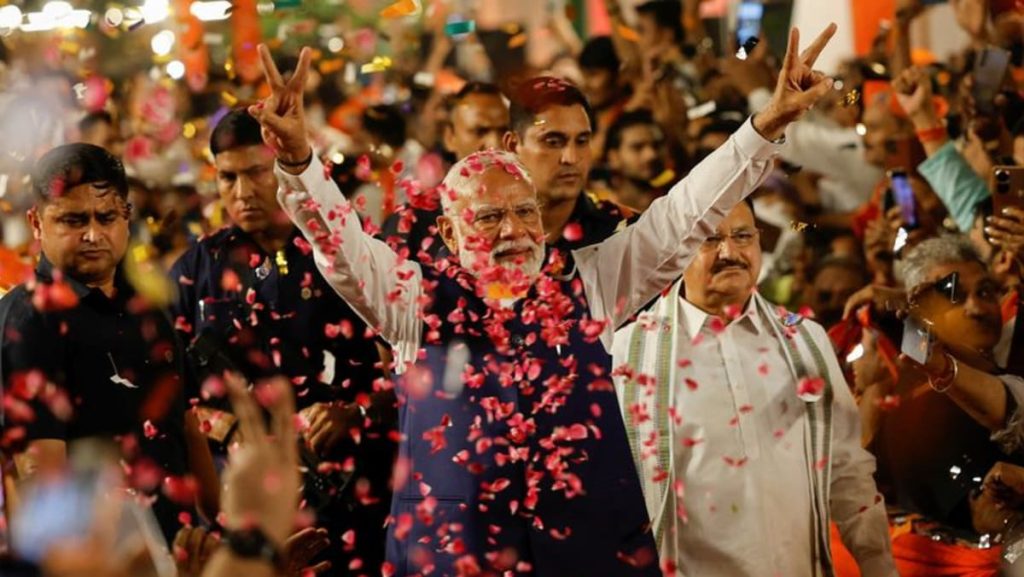China and Japan both congratulated Indian Prime Minister Narendra Modi following his ruling alliance’s victory in India’s general election. Beijing expressed readiness to work with India, emphasizing that a healthy and stable relationship between the two countries is in the common interest of both sides and conducive to peace and development in the region and the world. China congratulated Modi’s BJP party and the National Democratic Alliance (NDA) on their success in the elections. Modi, who has been a dominant figure in Indian politics since 2014, will now need the support of regional allies as his party did not secure an outright majority. The NDA won 293 seats, more than the 272 required to form a government.
Despite the NDA’s victory, Modi’s BJP party won 240 seats on its own, which is seen as a somewhat weakened mandate that could complicate the government’s reform agenda. China expressed its readiness to work with India to promote the healthy and stable development of bilateral relations, emphasizing the fundamental interests of both countries and peoples, as well as a focus on the bigger picture and future prospects. The ongoing tensions between China and India, particularly along their unofficial divide known as the Line of Actual Control, have been a source of concern. Both countries have accused each other of trying to seize territory in the region and have clashed several times. India remains cautious about China’s military assertiveness.
Japan’s top government spokesman also congratulated the ruling coalition led by Modi, highlighting India as an important partner for the realization of a free and open Indo-Pacific. Japan and India are both part of the Quad grouping, along with the United States and Australia, aimed at promoting security and prosperity in the region. Despite not being part of the G7, Modi attended the summit in Hiroshima last year, showcasing India’s growing role in international forums. The strong partnership between Japan and India reflects the shared strategic interests of the two countries.
The congratulatory messages from China and Japan to Prime Minister Modi underscore the importance of cooperation and stability in the region. Both countries recognize the significance of maintaining good relations with India for peace and development, as well as for advancing their own strategic objectives. Despite past tensions and territorial disputes, efforts are being made to strengthen ties and promote dialogue between China, Japan, and India. The complementary partnerships between these countries in various multilateral forums demonstrate a commitment to regional security and economic cooperation.
As Modi begins his second term as Prime Minister, the international community is watching closely to see how his government will navigate domestic challenges and global partnerships. With growing geopolitical complexities in the Indo-Pacific region, India’s relationships with China and Japan will be crucial in shaping regional dynamics. As major powers in the region, China and Japan play significant roles in determining the strategic landscape, and their interactions with India will have far-reaching implications. Modi’s leadership and diplomatic engagements will be key in managing these relationships and advancing India’s interests on the global stage.
In conclusion, China and Japan’s congratulations to Prime Minister Narendra Modi mark the beginning of a new phase in India’s regional and international relations. The messages of goodwill and cooperation from these important Asian powers point towards a commitment to stability and mutual understanding in the region. Modi’s re-election has set the stage for further engagement and collaboration with China and Japan, as well as other key players in the Indo-Pacific. The dynamics between these countries will continue to evolve, influenced by shared interests, strategic goals, and diplomatic initiatives. As India emerges as a major player in the region, its relationships with China and Japan will be pivotal in shaping the future of the Indo-Pacific and global geopolitics.















